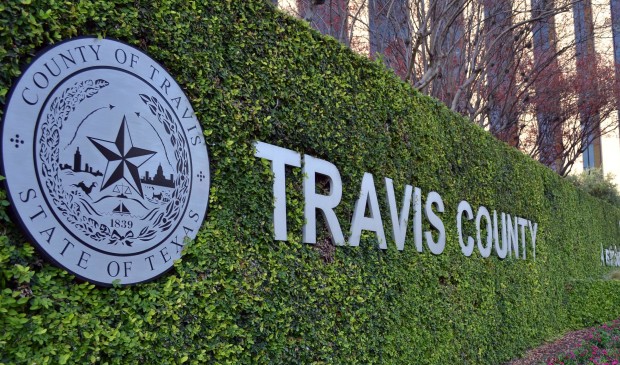Travis County ponders public information office
Wednesday, February 10, 2016 by
Caleb Pritchard Travis County Commissioners Court on Tuesday came close to derailing a months-in-the-making proposal to establish an official county officer to deal with media relations.
At the regular voting session of the commissioners court, members of the Public Information Subcommittee – a group of county staff members – unveiled five recommendations they had been developing since last August. They suggested the creation of a Travis County Office of Public Information to be staffed by a full-time public information officer. Two other recommendations included expanding online access of open records and improving open-records practices across county departments. The subcommittee also proposed to be retained as an advisory body moving forward.
After expressing concern about the cost of creating a brand-new county department, Commissioner Margaret Gómez attempted to move forward with only the latter recommendations.
“It all boils down to the taxpayers having to pay for all of this,” Gómez said. “And I think those taxpayers eventually go and complain to the state representatives and state senators, and that’s where it all comes back down to the idea that local government is spending a lot of money on things that perhaps we could do without.”
Indeed, the subcommittee estimated that the cost of staffing a brand-new Public Information Office with two full-time employees – a public information officer and an open-records coordinator – would top $185,000 annually.
Gómez’s motion died without a second, sparing the subcommittee the frustration of seeing its work end up in the dustbin, but Commissioner Gerald Daugherty echoed Gómez’s concern.
“I agree with Commissioner Gómez,” said Daugherty. “I’m not looking necessarily for (full-time employees). If we have to have them, that’s great, but I do know what tends to happen with this. You can grow an office pretty fast.”
As it stands, there are currently a handful of PIOs who work for separate county agencies. Open-records requests are handled by whichever department they are submitted to, but cross-departmental requests and any requests that raise potential legal questions end up going through the County Attorney’s Office.
Daugherty suggested the possibility of exploring interlocal agreements with the city of Austin that could make available to the county the city’s copious public information apparatus. Gómez noted that both governments have coordinated with each other in the past during emergencies related to severe weather, when crucial information must be channeled effectively to the public.
County Judge Sarah Eckhardt countered that that level of coordination doesn’t adequately cover the county’s needs. She pointed to the last major collaboration between the city and county, during the deadly storms in October of last year. “Recall that in that week, we had a flood on Friday, we had a bond election fail on Tuesday and then we had a shooting of one of our district judges the following Friday. It was a horrible 10 days,” Eckhardt said. “And for those three events, there was no single PIO hat could cover all three of those.”
Daugherty agreed that there was a deficiency during that stretch but dismissed the string of calamities as an exception to the rule. That prompted Eckhardt to then ask Emergency Services Public Information Officer Lisa Block – a member of the subcommittee – how often she experiences downtime.
“Not often,” Block readily replied. “There may be a week or so where I can actually go back to my to-do list and start hammering out some stuff, but usually there’s something going on at all times.”
One other notable point offered by the subcommittee was the county’s bilingual shortcomings in its public information channels. It was noted that during October’s floods, the county was unable to provide Spanish-language versions of its reverse-911 calls.
“That was a major, major problem,” Eckhardt emphatically declared. “And it was from the lack of a robust PIO presence. That was a major, major problem.”
In the end, the court did not take any action on the subcommittee’s recommendations. Eckhardt did ask the group to explore “the pros and cons” of an interlocal agreement with the city. There was no indication of when any new recommendations will come back.
You're a community leader
And we’re honored you look to us for serious, in-depth news. You know a strong community needs local and dedicated watchdog reporting. We’re here for you and that won’t change. Now will you take the powerful next step and support our nonprofit news organization?




